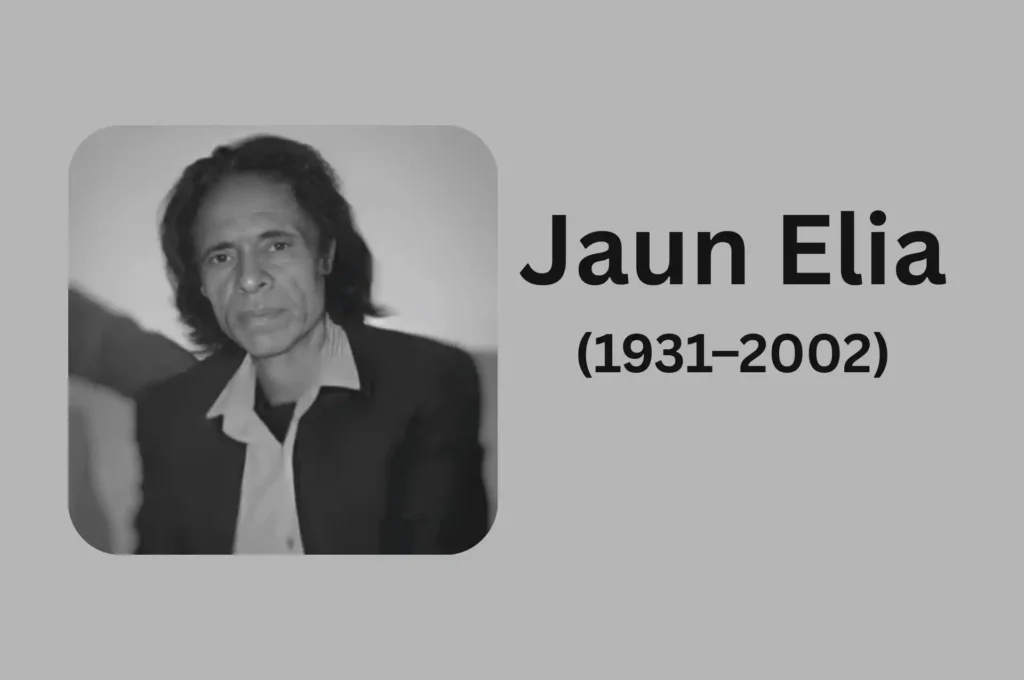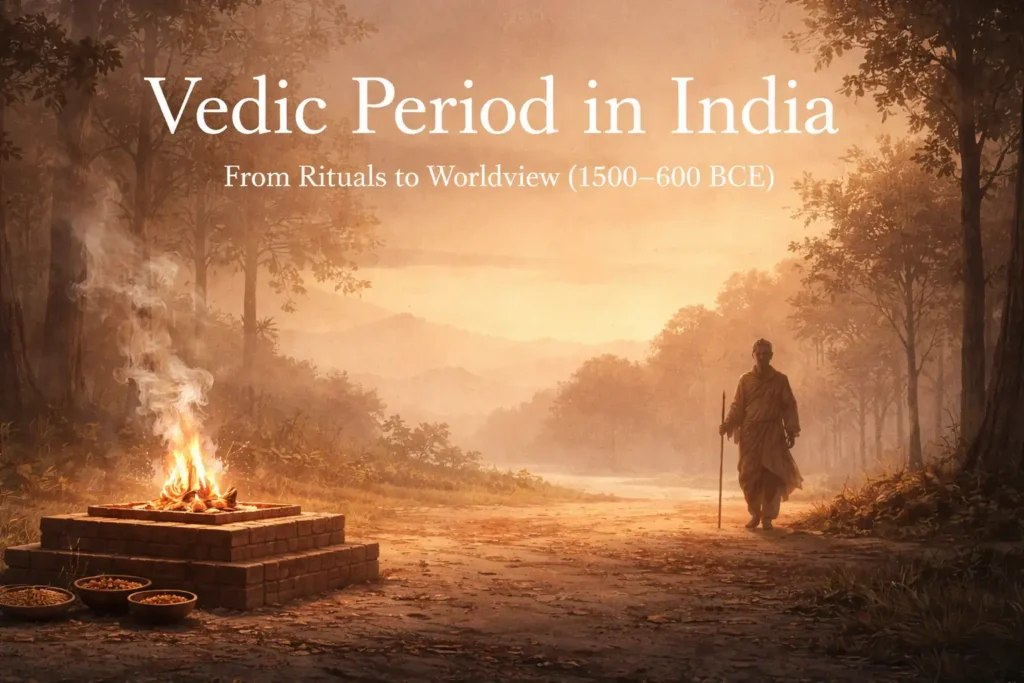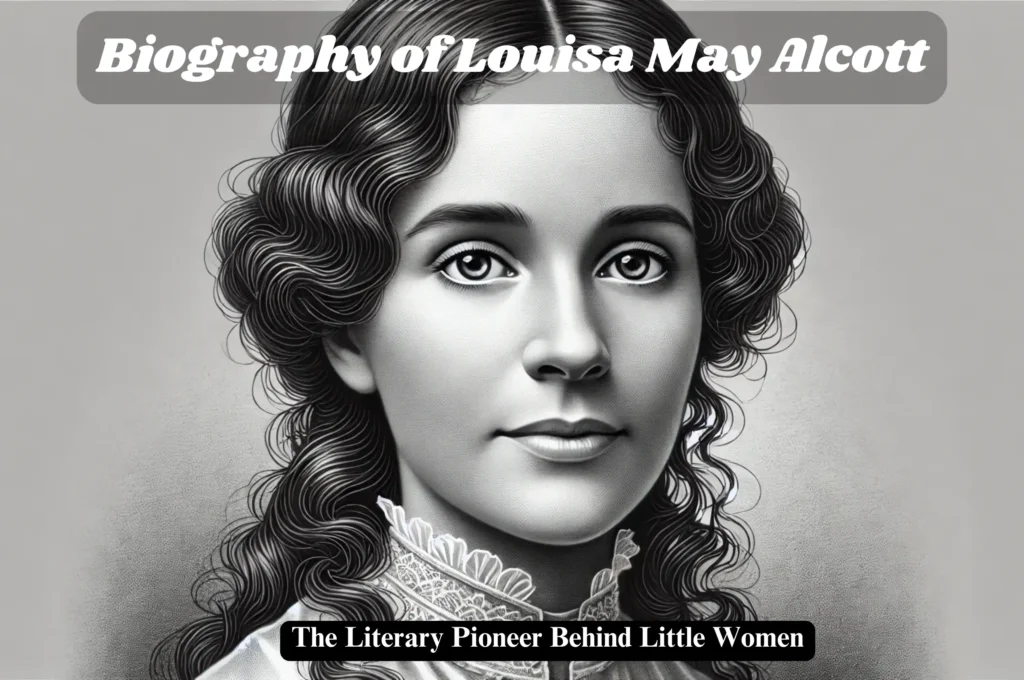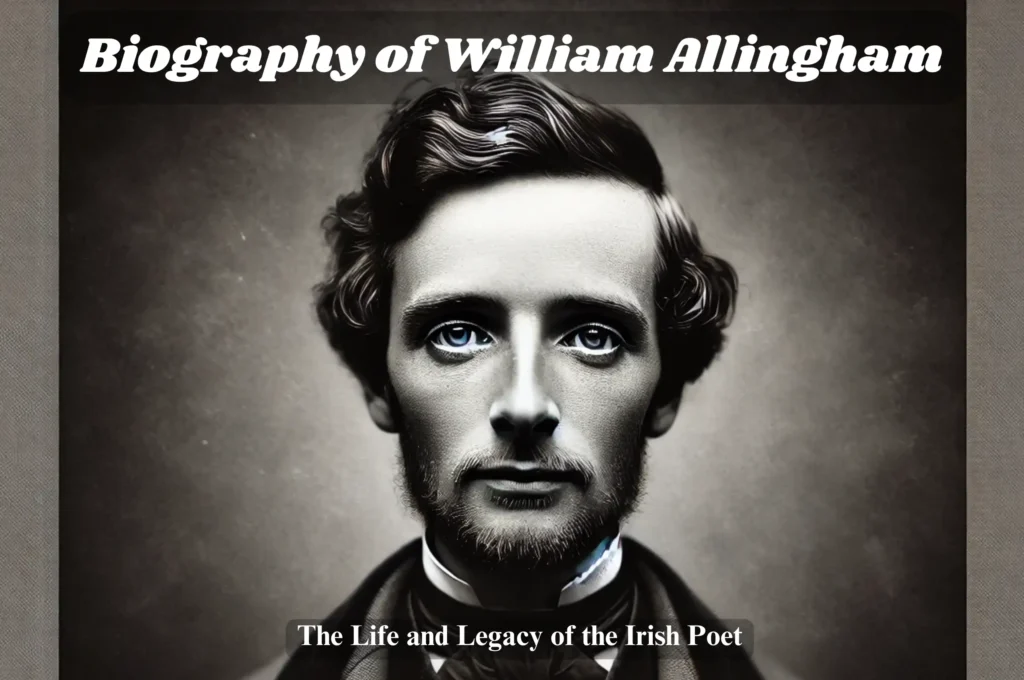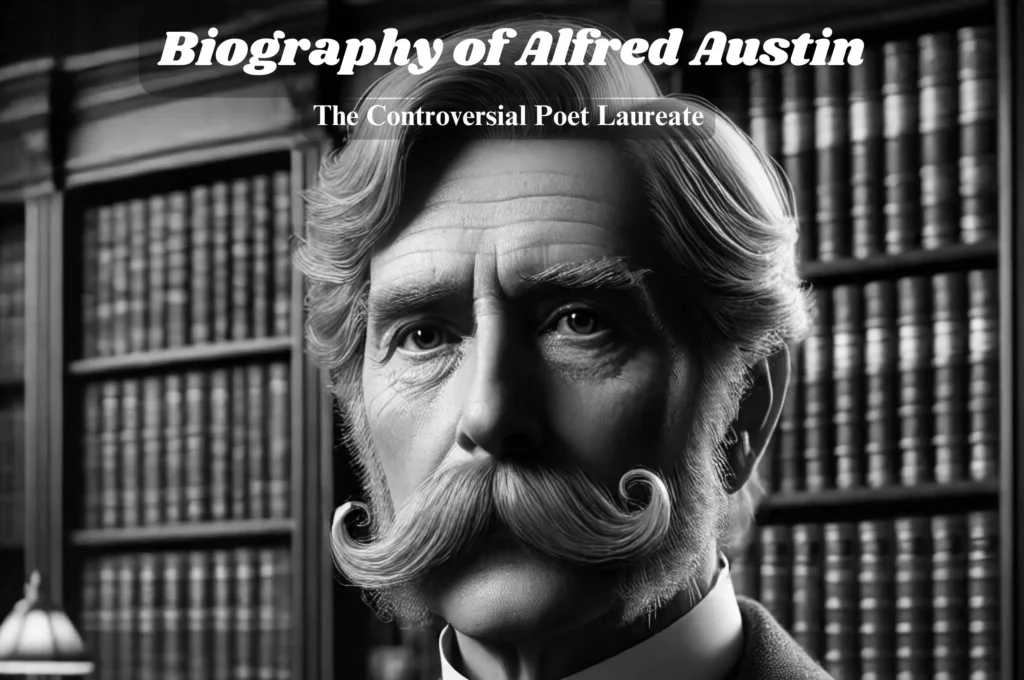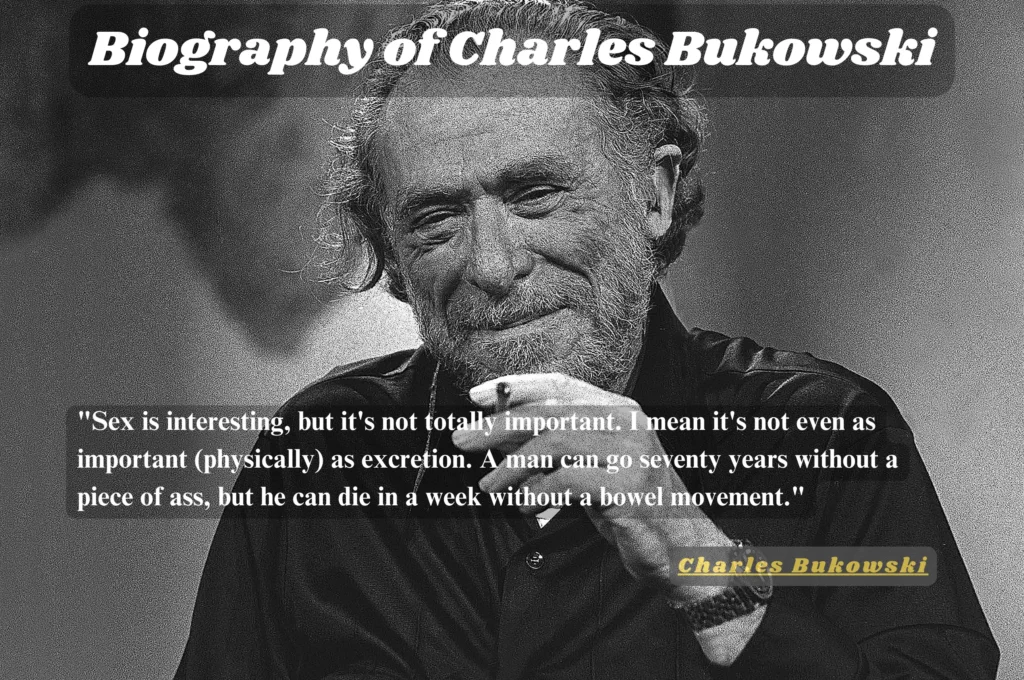Do you know who transformed the simple landscapes of New England into profound meditations on life, love, and the human condition? When I think of American poetry, one name stands out like a beacon through the literary mists – Robert Lee Frost. This extraordinary poet didn’t just write verses; he carved immortal truths from the everyday experiences of rural life, creating a legacy that continues to inspire readers across the globe.
Young Robert Frost around 1910. Do you know that Robert Frost, one of America’s most beloved poets, was born on March 26, 1874, in San Francisco? His family moved to Lawrence, Massachusetts after his father died of tuberculosis when Frost was only eleven. It was in New England’s mill town atmosphere that he first discovered a love for reading and writing. It is interesting to know that he attended Dartmouth College and later Harvard University (starting in 1897), though he never completed a degree.
Even as a teenager Frost was already publishing poems – by the time he graduated high school he had shared valedictorian honors and sold his first piece “My Butterfly” to a New York newspaper. I find it fascinating that these early experiences – loss and change – ignited Frost’s poetic imagination.
Explore: Biographies and Also Read:
- Poet Dante Alighieri: Biography, and Poems
- Biography of Archie Randolph Ammons
- Biography of Emily Dickinson
- Biography of William Wordsworth | A Life in Poetry
Explore: Biography of Robert Frost, Robert Frost famous poems, Robert Frost Poems
Biography of Robert Frost: The Voice of Rural America and the Heart of Modern Poetry
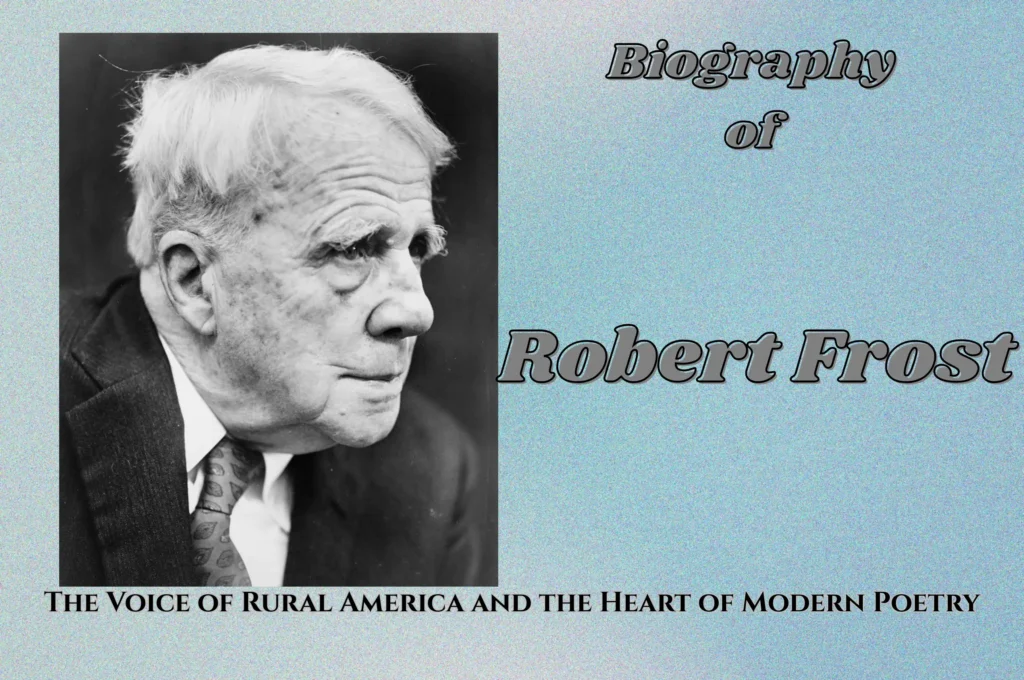
Early Life and Childhood: Where Dreams Take Root
Robert Lee Frost was born on March 26, 1874, in San Francisco, California, to parents who would shape his character in unexpected ways. His father, William Prescott Frost Jr., was a journalist and descendant of a Devonshire Frost who had sailed to New Hampshire in 1634 aboard the ship Wolfrana. It is interesting to know that Frost was named after Confederate General Robert E. Lee, reflecting his father’s Southern sympathies.
His mother, Isabelle Moodie, was a Scottish-born schoolteacher who possessed a dreamy disposition and suffered from depression. This combination of his father’s political ambitions and his mother’s melancholic temperament would later influence the complex emotional landscapes that characterize Frost’s poetry.
Do you know what tragedy struck young Robert when he was just eleven years old? His father died of tuberculosis in 1885, leaving the family with only eight dollars and a future filled with uncertainty. This loss forced the family to move across the country to Lawrence, Massachusetts, to live with his paternal grandparents. The journey from the sunny landscapes of California to the harsh winters of New England would prove to be more than just a geographical change – it was a transformation that would awaken the poet within him.
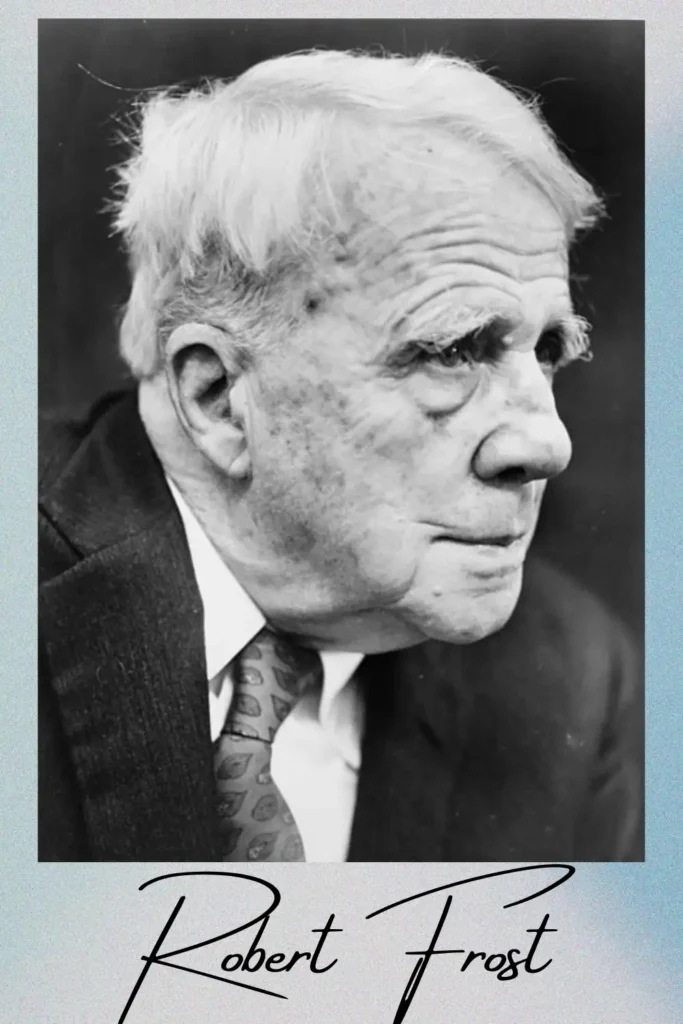
Education and Early Struggles: The Making of a Literary Mind
When I read about Frost’s educational journey, I’m struck by how unconventional it was for someone who would become America’s most celebrated poet. Despite being a mediocre student in his early years, he transformed himself into a serious scholar, graduating from Lawrence High School in 1892 as co-valedictorian and class poet alongside his future wife, Elinor Miriam White.
His time at Dartmouth College was brief – just two months – though long enough to be accepted into the Theta Delta Chi fraternity. He later studied philology at Harvard University from 1897 to 1899 but never completed his degree. It is fascinating to observe how Frost drifted through various occupations after leaving formal education: teacher, cobbler, editor of the Lawrence Sentinel, and even a maintenance worker for carbon arc lamps.
His first published poem, “My Butterfly: An Elegy,” appeared in The Independent on November 8, 1894, earning him fifteen dollars. I find it remarkable how this single publication fee represented hope for a young man struggling to make his mark in the world.
Marriage and Family: Love, Loss, and Literary Inspiration
In 1895, Frost married Elinor Miriam White, his co-valedictorian from high school. Their love story reads like poetry itself – two young minds united by shared academic excellence and literary passion. Elinor would become not just his wife but his greatest inspiration until her death in 1938.
Do you know the heartbreaking reality of Frost’s family life? The couple had six children, but their story is marked by profound tragedy. Their son Elliott died in 1904 at age eight from cholera, Carol committed suicide in 1940, Marjorie died in 1934 from puerperal fever after childbirth, and their daughter Elinor Bettina died just three days after birth in 1907. Only two children, Lesley and Irma, outlived their father, though Irma was committed to a mental institution in 1947.
These personal tragedies infused Frost’s poetry with a deep understanding of loss and resilience that resonates in lines like those from “Home Burial,” where he explores the devastating impact of a child’s death on a marriage.
The English Years: Finding His Voice
In 1912, the Frosts made a pivotal decision – determined by a coin flip – to move to England rather than Vancouver. They settled in the Gloucestershire village of Dymock, where Frost finally had the freedom to pursue his dream of becoming a full-time poet.
It is interesting to know that his time in England from 1912 to 1915 proved to be the most productive period of his early career. Here, he published his first two collections: “A Boy’s Will” (1913) and “North of Boston” (1914). During this period, he formed crucial friendships with British poets including Edward Thomas, Rupert Brooke, Robert Graves, and significantly, Ezra Pound, who became one of the first critics to recognize Frost’s genius.
When I think about this period, I’m amazed by how being away from America helped Frost discover his distinctly American voice. The distance from his homeland allowed him to see New England with fresh eyes, transforming his memories into universal truths.
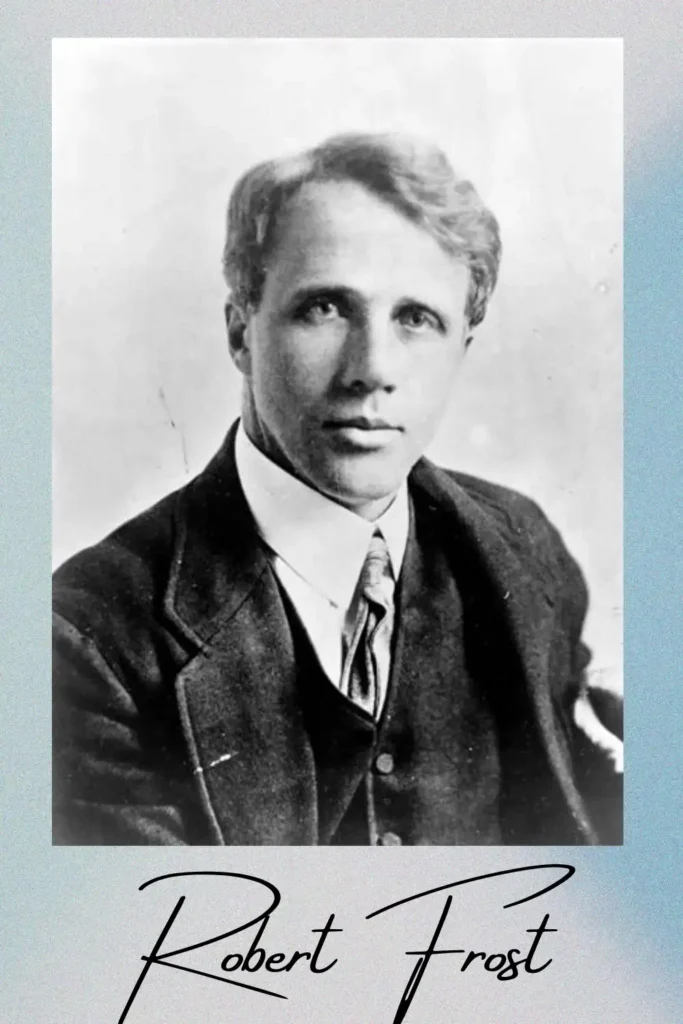
Return to America and Literary Success: The Rise of a National Poet
By the time Frost returned to the United States in 1915, he had established his reputation. He purchased a farm in Franconia, New Hampshire, and began a career that would span decades as writer, teacher, and lecturer. From 1916 to 1938, he served as professor of English at Amherst College, where he encouraged his students to capture “the human voice” in their writing.
The 1920s marked Frost’s emergence as America’s most celebrated poet. I love how his collection “New Hampshire” (1923) won him his first Pulitzer Prize, and it would be followed by three more – in 1931 for “Collected Poems,” in 1937 for “A Further Range,” and in 1943 for “A Witness Tree”. No other poet has achieved this remarkable feat in the poetry category.
Major Works and Literary Themes: Capturing the American Soul
When I read his poem “The Road Not Taken,” I’m transported to that yellow wood where two paths diverged, feeling the weight of choice that defines human existence:
“Two roads diverged in a yellow wood,
And sorry I could not travel both
And be one traveler, long I stood…”
Do you know the fascinating irony behind this beloved poem? Frost actually wrote it as a gentle joke for his friend Edward Thomas, who was chronically indecisive about which path to take during their walks. Yet this playful origin doesn’t diminish its profound impact on readers worldwide who see in it a meditation on life’s choices and their consequences.
“Stopping by Woods on a Snowy Evening” represents another masterpiece that I love to read again and again:
“The woods are lovely, dark and deep,
But I have promises to keep,
And miles to go before I sleep,
And miles to go before I sleep.”
Frost’s poetry frequently draws on rural New England life to explore deep themes. He writes in a familiar, conversational style, using everyday language. Complex ideas hide in simple words. It is interesting to know that although Frost loved the New England setting, critics agree his work goes far beyond a regional portrait. He remained true to traditional verse forms but infused them with modern irony and psychological depth. Frost often dealt with universal subjects – mortality, love, nature, and the human condition. For example, “A Servant to Servants” and “Home Burial” examine family struggles, while “The Death of a Hired Man” and “Birches” show compassion and hope.
If you look closely, Frost’s lines carry wisdom about life. Consider his poetic credo from “Figure a Poem”: “No tears in the writer, no tears in the reader” – meaning a poem should feel true and revealing. His style feels friendly, as if he’s telling us a story by the fireplace. Yet he invites the reader to think deeply. The quiet suspense in his poems, combined with the beauty of nature imagery, makes readers connect emotionally. Many readers, like me, feel inspired and comforted by Frost’s gentle voice, as he turns ordinary moments into lessons about life.
It is remarkable how these simple lines capture the eternal tension between desire and duty, between the allure of escape and the call of responsibility. Frost wrote this poem in 1922 after spending an entire night working on “New Hampshire,” and the inspiration came to him as naturally as breath.
The Art of “Sentence-Sound”: Frost’s Revolutionary Technique
What makes Frost’s poetry so distinctive is his development of what he called “sentence-sound” – the musical quality of language that conveys meaning beyond words. He compared this to listening to a conversation through a closed door, where you can’t hear the words clearly but can still sense the emotional tone.
When I analyze poems like “Birches,” I see this technique in full display:
“I’d like to get away from earth awhile
And then come back to it and begin over.”
These lines don’t just describe a desire for escape; they embody the weary cadence of someone who has lived through life’s struggles and dreams of renewal.
Explore: Biography of Robert Frost, Robert Frost famous poems, Robert Frost Poems
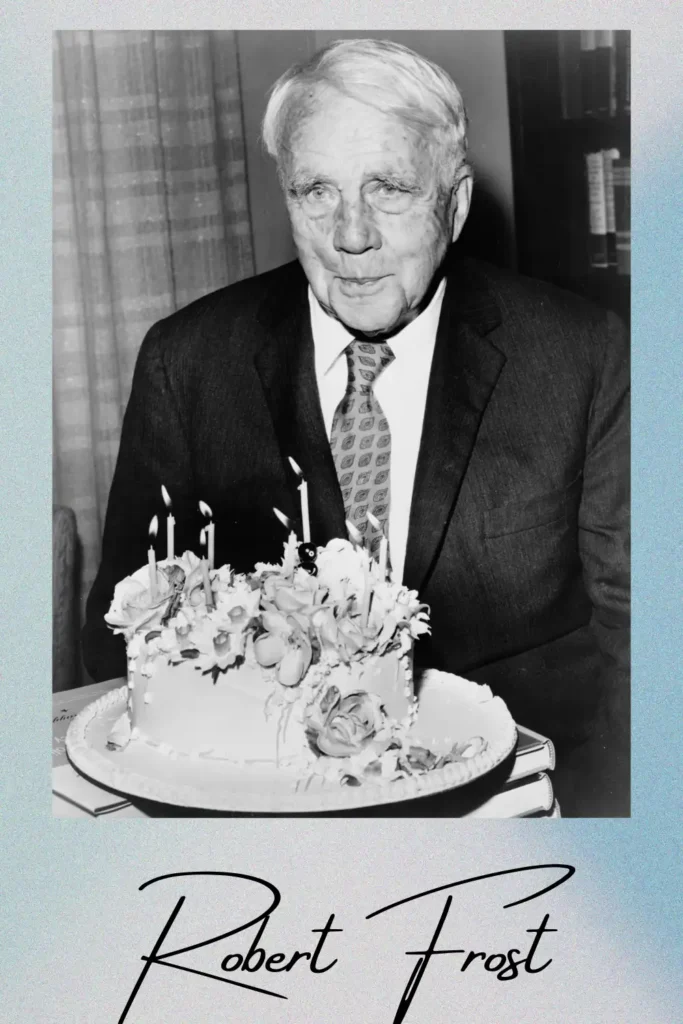
Robert Frost famous poems ~ Major Works and Collections
Robert Frost’s major poetry collections include many that won him four Pulitzer Prizes (a record for any poet). Key books include:
- A Boy’s Will (1913) – his first book of poems.
- North of Boston (1914) – continuing his rich New England imagery.
- New Hampshire: A Poem with Notes and Grace Notes (1923) – earned Frost his first Pulitzer Prize.
- Collected Poems (1930) – a second Pulitzer winner (for 1931).
- A Further Range (1936) – another Pulitzer Prize collection.
- Steeple Bush (1947) – Pulitzer Prize winner (1948).
- In the Clearing (1962) – his last book of poetry.
These volumes chart Frost’s growth from a New England rural poet into a voice of universal themes. His poems are often published in anthologies and studied around the world.
Frost’s Treatment of Nature: Beyond Simple Pastoral Poetry
Many readers misunderstand Frost as merely a “nature poet,” but it is important to recognize that nature in his work serves as a complex metaphor for human experience. As Frost himself admitted, he had “only three or four pure nature poems. The rest were human portraits with a nature setting”.
In “Mending Wall,” the annual ritual of repairing a stone boundary becomes a meditation on human relationships and the barriers we construct:
“Something there is that doesn’t love a wall,
That wants it down.”
Yet his neighbor insists: “Good fences make good neighbors”. I find it fascinating how Frost presents both perspectives without fully endorsing either, leaving readers to grapple with the complex questions about connection and separation that define human relationships.
The Dark Undertones: Confronting Life’s Harsh Realities
While Frost is often celebrated for his accessible style, do you know about the darker themes that run through his work? His personal experiences with loss, mental illness, and tragedy infused his poetry with what critics call a “dark and dismal tone”. This isn’t the simple wisdom of a cheerful farmer but the hard-earned knowledge of someone who has faced life’s most challenging realities.
It is interesting to note how Frost’s treatment of nature often reveals its destructive power. In “Storm Fear,” he presents nature not as a gentle teacher but as a “raging beast” that threatens human survival. This realistic portrayal sets him apart from the romantic nature poets of the 19th century.
Literary Recognition and Cultural Impact
Frost’s influence extended far beyond literary circles. When I think about his role as a cultural ambassador, I’m struck by his historic recitation at President John F. Kennedy’s inauguration in 1961, where he delivered “The Gift Outright”. He became the first and only poet to recite (rather than read) at a presidential inauguration, cementing his status as America’s unofficial poet laureate.
President Kennedy beautifully captured Frost’s significance: “He has bequeathed his nation a body of imperishable verse from which Americans will forever gain joy and understanding”. The President also noted how Frost “saw poetry as the means of saving power from itself,” recognizing the poet’s role in keeping leaders grounded in humanity.
Teaching and Mentorship: Shaping Future Generations
Throughout his career, Frost served as more than just a poet – he was an educator and mentor. He held positions at various prestigious institutions including Harvard (1939-43), Dartmouth (1943-49), and Amherst College (1949-63). It is wonderful to know that he encouraged young writers to find their authentic voices, just as he had found his own unique style that bridged traditional forms with modern sensibilities.
His influence on the Bread Loaf Writers’ Conference at Middlebury College in Vermont helped shape countless emerging writers. Do you know how many contemporary poets trace their inspiration back to encountering Frost’s work or attending his readings?
The Final Years: A Life Completed
When I contemplate Frost’s later years, I see a man who had achieved everything a poet could dream of – four Pulitzer Prizes, international recognition, the admiration of presidents and common readers alike. In 1960, he received the Congressional Gold Medal, and in 1962, he was honored with the title of Poet Laureate of Vermont.
His final collection, “In the Clearing,” was published in 1962 when he was 88 years old. Even in his advanced age, his commitment to poetry never wavered. His diplomatic mission to the Soviet Union in 1962, where he met with Premier Khrushchev, demonstrated his continued relevance on the world stage.
Explore: Biography of Robert Frost, Robert Frost famous poems, Robert Frost Poems
Death and Immortal Legacy
Robert Frost died on January 29, 1963, at age 88 in Boston, Massachusetts, due to complications from prostate surgery. The White House announcement of his death spoke of “a vacancy in the American spirit,” calling him “the great American poet of our time”.
It is deeply moving to read his epitaph in the Old Bennington Cemetery in Vermont: “I had a lover’s quarrel with the world” – a line from his poem “The Lesson for Today” (1942). These words perfectly capture the complex relationship between poet and world that characterized his entire career.
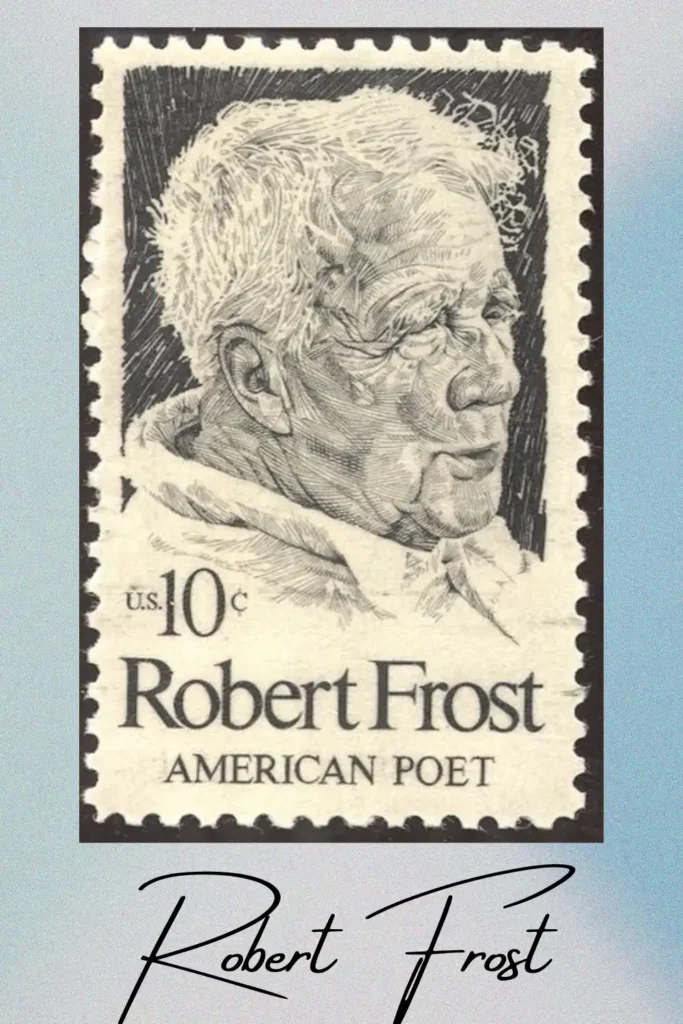
The Enduring Influence: Why Frost Matters Today
Do you know why Robert Frost remains relevant in our digital age? His poetry addresses timeless human experiences – making difficult choices, balancing duty with desire, finding meaning in ordinary moments, and confronting loss with courage. His accessible language and profound insights make him uniquely positioned to speak to readers across generations and cultures.
I am constantly amazed by how Frost’s influence extends beyond literature into popular culture, education, and even psychology. His poems are quoted in movies, referenced in political speeches, and studied in classrooms around the world. The Robert Frost Trail in New England, schools and libraries named in his honor, and countless literary prizes given in his name testify to his lasting impact
📜 List of Robert Frost Poems
🌟 Most Famous Robert Frost Poems
These are the poems almost every literature student or poetry lover knows:
- The Road Not Taken (1916)
- Stopping by Woods on a Snowy Evening (1923)
- Mending Wall (1914)
- Birches (1916)
- Fire and Ice (1920)
- Nothing Gold Can Stay (1923)
- After Apple-Picking (1914)
- The Death of the Hired Man (1914)
- Home Burial (1914)
- Acquainted with the Night (1928)
- Design (1922)
- Directive (1947)
- The Gift Outright (1936, read at JFK’s inauguration in 1961)
📚 Poems by Collection
A Boy’s Will (1913) – Frost’s First Collection
- Into My Own
- Ghost House
- My November Guest
- Love and a Question
- A Late Walk
- Storm Fear
- Reluctance
North of Boston (1914)
- Mending Wall
- The Death of the Hired Man
- Home Burial
- After Apple-Picking
- The Black Cottage
- The Wood-Pile
Mountain Interval (1916)
- The Road Not Taken
- Birches
- An Old Man’s Winter Night
- The Oven Bird
- Out, Out—
- The Hill Wife
New Hampshire (1923) – Pulitzer Prize
- Stopping by Woods on a Snowy Evening
- Fire and Ice
- Nothing Gold Can Stay
- The Need of Being Versed in Country Things
- To Earthward
West-Running Brook (1928)
- Acquainted with the Night
- Spring Pools
- The Rose Family
- Tree at My Window
A Further Range (1936) – Pulitzer Prize
- Two Tramps in Mud Time
- A Drumlin Woodchuck
- The Gold Hesperidee
A Witness Tree (1942) – Pulitzer Prize
- The Silken Tent
- Come In
- The Gift Outright
Steeple Bush (1947)
- Directive
- One Step Backward Taken
In the Clearing (1962) – Frost’s Last Collection
- For John F. Kennedy His Inauguration
- Kitty Hawk
- The Draft Horse
Explore: Biography of Robert Frost, Robert Frost famous poems, Robert Frost Poems
💡 Quick Fun Fact
Do you know that Frost’s shortest masterpiece “Nothing Gold Can Stay” is only 8 lines long yet considered one of the most powerful reflections on impermanence? 🌅
Conclusion: The Road He Took Made All the Difference
When I reflect on Robert Frost’s extraordinary life and career, I see a man who transformed personal struggle into universal truth, who found profound meaning in simple moments, and who proved that traditional poetic forms could carry thoroughly modern insights. From the tragic loss of his father at age eleven to his triumph as America’s beloved poet laureate, Frost’s journey exemplifies the power of perseverance and artistic vision.
His famous lines from “The Road Not Taken” – “And that has made all the difference” – could serve as the summary of his entire life. The road he took through poetry, through the landscapes of New England, through the complexities of human relationships, and through the challenges of artistic creation has indeed made all the difference – not just for him, but for the millions of readers who continue to find solace, wisdom, and beauty in his verses.
I love to think that somewhere in a yellow wood, two paths still diverge, waiting for the next traveler to pause, choose, and discover that poetry lives in every moment of human experience. Robert Frost showed us that path, and his voice continues to guide us through the lovely, dark, and deep woods of life, reminding us of our promises to keep and the miles we have yet to travel before we sleep.
It is this enduring relevance that makes Robert Frost not just a poet of the past, but a timeless voice speaking directly to the human heart, offering comfort in our struggles and celebrating the extraordinary beauty hidden in our ordinary days. Through his words, we learn that the journey itself – with all its choices, challenges, and quiet revelations – is what makes us truly human.
Explore: Biography of Robert Frost, Robert Frost famous poems, Robert Frost Poems
Sources: This biography draws on reputable literary sources. Key facts about Frost’s life and career are from the Academy of American Poets and historical recordspoets.orgen.wikipedia.org. Quotes and lines from his poems are from the Poetry Foundation archivespoetryfoundation.orgpoetryfoundation.org, and details about honors and legacy are confirmed by historical documents
Explore: Biographies and Also Read:
- Poet Dante Alighieri: Biography, and Poems
- Biography of Archie Randolph Ammons
- Biography of Emily Dickinson
- Biography of William Wordsworth | A Life in Poetry
Explore: Biography of Robert Frost, Robert Frost famous poems, Robert Frost Poems
